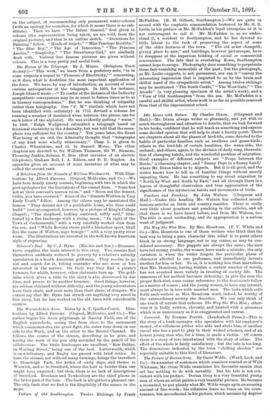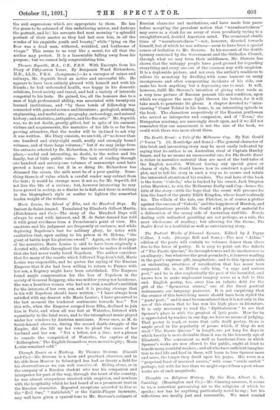The Picture of Dorian Gray. By Oscar Wilde. (Ward, Lock,
and Co.)—In a number of sentences which somehow remind us of Walt Whitman, Mr. Oscar Wilde enunciates his favourite maxim that
art has nothing to do with morality. But his tale is not con- sistent with his preface. Dorian Gray is a very beautiful young man of whom an artist paints a very beautiful picture. He becomes a scoundrel, to put plainly what Mr. Wilde wraps up in an amazing amount of fine words ; his villainies leave no trace on his coun- tenance, but are reflected in his picture, which assumes by degrees the evil expressions which are appropriate to them. He has the grace to be ashamed of this unflattering mirror, and destroys the portrait, and lo ! his servants find next morning "a splendid portrait of their master as they had last seen him, in all the wonder of his exquisite youth and beauty," while "lying on the floor was a dead man, withered, wrinkled, and loathsome of visage." This seems to us very like a moral, for all that the author may protest. It is a lamentable falling away from his purpose ; but we cannot help congratulating him.



































 Previous page
Previous page